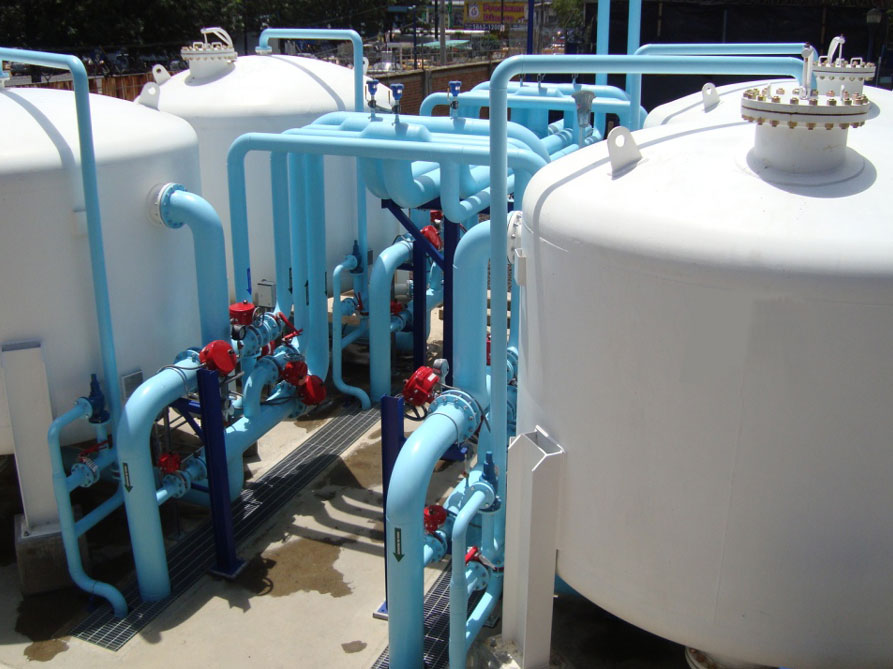Filtration is one of the basic phases of drinking, process and wastewater treatment.
Filtration is a process in which solid particles in a liquid or gaseous liquid are removed using a filter medium that allows the passage of the liquid while retaining the solid particles.
Filtration can mean the use of a physical barrier, a chemical and / or biological process. Particle removal is carried out by procedures that include: stress, flocculation and deposition.
Filtration of water through the filter medium can only take place if some driving force is applied, which can be caused by gravity, centrifugation, pressure on the liquid above the filter or other processes that use pumps, valves and pipes to produce enough pressure to push water through the filter.
There are different types of water filters, such as strainers, slow sand filtration filters, fast gravity filters, membrane filters and granular filter media.
Gravity filtration is a method of filtering impurities using gravity to pass liquid through a filter. This form of filtration occurs through layers of granular media and consists of interception, strain, flocculation, and precipitation.

Water filtration takes place through various media and filtration systems, which usually include:
- Mechanical filters (sieves, grids, screens)
- Sand filters
- Granular activated carbon filters
- Multimedia (multilayer) filters
Filter systems mainly consist of a medium contained in a pressure vessel and a valve system, perforated pipes or nozzle plates that collect the filtered water and serve to distribute and supply water and air to wash the filter.


